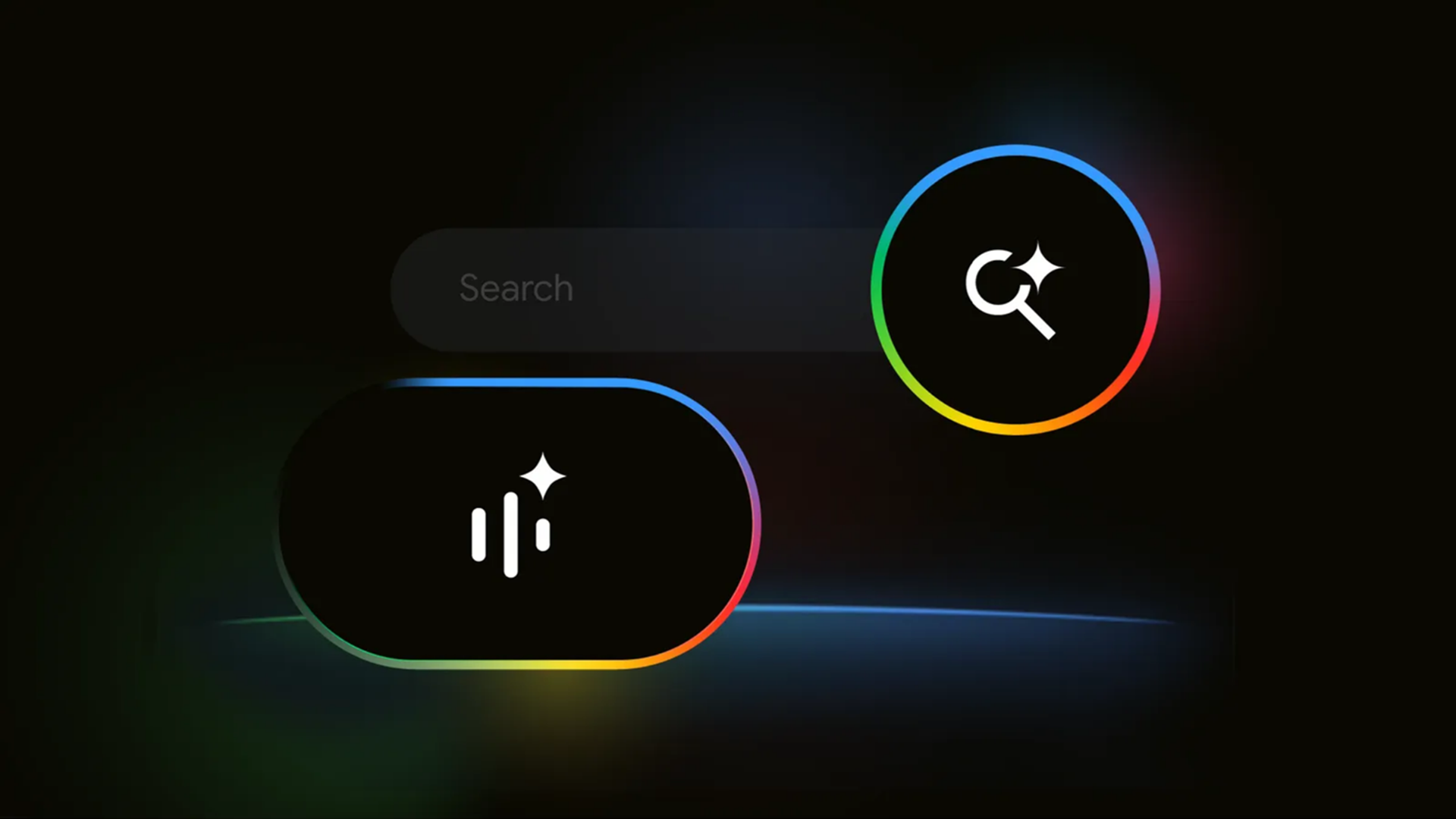I tried Google’s new Search Live feature and ended up debating an AI about books
And that may be the point of Google's new AI feature

Sign up for breaking news, reviews, opinion, top tech deals, and more.
You are now subscribed
Your newsletter sign-up was successful
- Google’s new Search Live feature lets users hold real-time voice conversations with an AI-powered version of Search
- The Gemini-powered AI attempts to simulate a friendly and knowledgeable human.
- Google is keen to have all roads lead to Gemini, and Search Live could help entice people to try the AI companion without realizing it
Google's quest to incorporate its Gemini into everything has a new outlet linked to its most central product. The new Google Search Live essentially gives Google Search's AI Mode a Gemini-powered voice.
It’s currently available to users in the U.S. via the Google app on iOS and Android, and it invites you to literally talk to your search bar. You speak, and it speaks back; unlike the half-hearted AI assistants of yesteryear, this one doesn’t stop listening after just one question. It’s a full dialogue partner, unlike the non-verbal AI Mode.
It also works in the background, which means I could leave the app during the chat to do something else on my phone, and the audio didn’t pause or glitch. It just kept going, as if I were on the phone with someone.
Google refers to this system as “query fan-out,” which means that instead of just answering your question, it also quietly considers related queries, drawing in more diverse sources and perspectives. You feel it, too. The answers don’t feel boxed into a single form of response, even on relatively straightforward queries like the one about linen dresses in Google's demo.
AI Search Live
To test Search Live out, I tapped the “Live” icon and asked for speculative fiction books I should read this summer. The genial voice offered a few classic and a few more recent options. I then opened Pandora's box by asking it about its own favorites. Surprisingly, it had a few. I then decided to push it a bit and tell it it was wrong about the best fantasy books and listed a few of my own. Suddenly, I found myself in a debate not only about the best examples of the genre, but also about how to define it.
We segued from there to philosophical and historical opinions about elvish empathy and whether AI should be compared to genies or the mythical brownies that do housework in exchange for cream. Were it not for the smooth, synthetic voice and its relentless good cheer, I might have thought I was actually having an idle argument with an acquaintance over nothing important.
It's obviously very different from the classic Google Search and its wall of links. If you look at the screen, you still see the links, but the focus is on the talk. Google isn't unique with a vocal version of its AI, as ChatGPT and others proffer similar features. Google Search Live does come off as smoother, and I didn't have to rephrase my questions or repeat myself once in 10 minutes. Being integrated with Google’s actual search systems might help keep things grounded. It’s like talking to someone who always has a stack of citations in their back pocket.
Sign up for breaking news, reviews, opinion, top tech deals, and more.
I don't think Search Live is what people will use to replace their usual online search methods, but here’s a real accessibility benefit to it. For people who can’t comfortably type or see, voice-first tools like this open new doors. Same goes for kids asking homework questions, or for someone cooking dinner who has a random question but doesn't want to pause to wipe flour off their screen.
There’s a tradeoff, of course, in terms of how people browse the web. If this kind of conversational AI becomes the dominant interface for search on Google, what happens to web traffic? Publishers already feel like they’re shouting into the void when their content is skimmed by AI and hiring lawyers to fight it. What will the AI search if its sources shrink or vanish? It's a complicated question, worthy of debate. I'll have to see how Search Live lays out the arguments.
You might also like

Eric Hal Schwartz is a freelance writer for TechRadar with more than 15 years of experience covering the intersection of the world and technology. For the last five years, he served as head writer for Voicebot.ai and was on the leading edge of reporting on generative AI and large language models. He's since become an expert on the products of generative AI models, such as OpenAI’s ChatGPT, Anthropic’s Claude, Google Gemini, and every other synthetic media tool. His experience runs the gamut of media, including print, digital, broadcast, and live events. Now, he's continuing to tell the stories people want and need to hear about the rapidly evolving AI space and its impact on their lives. Eric is based in New York City.
You must confirm your public display name before commenting
Please logout and then login again, you will then be prompted to enter your display name.
